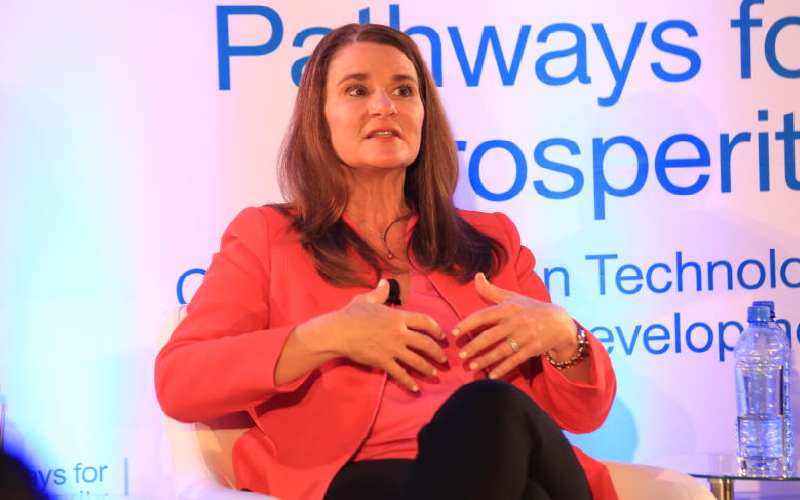
Bill&Melinda Gates foundation co-founder Melinda Gates during the launch of Pathways for Prosperity in Nairobi in 2018. [File, Standard]
This year’s Goalkeepers Report released on Monday is unique. Led by the Bill & Melinda Gates Foundation, Goalkeepers is dedicated to accelerating the progress towards Sustainable Development Goals. Coming at a time the world is battling Covid-19, the annual report details the damage the pandemic is doing to health, global economies and life. Standard Group External Affairs/Editorial Liaison Manager Najma Ismael interviewed Melinda Gates on the report and Covid-19.